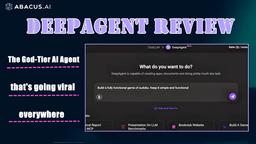Automated Content Advisories Introduction
Automated Content Advisories is an API service that analyzes text, audio, and video content to generate warnings about rhetoric, themes, hate speech, profanity, and nudity.
View MoreWhat is Automated Content Advisories
Automated Content Advisories is a service provided by Parabasis that aims to address the pervasive content problem on the web, particularly concerning persuasive language. It operates on the principle that users deserve a 'duty to warn' about potentially manipulative or influential content. The service provides automated warnings and advisories for various types of online content, including text, audio, and video, to help users make more informed decisions about the media they consume.
How does Automated Content Advisories work?
The service uses flexible APIs to analyze content across different mediums. For rhetoric detection, it employs models that focus on how things are said rather than just the words used, erring on the side of caution to give people the benefit of the doubt. It avoids using word embeddings or neural networks for rhetoric analysis to minimize bias. The service also offers additional features like theme identification, hate speech detection, profanity filtering, and nudity detection. These features can be applied to various platforms including search engines, content platforms, social media, and even AI-generated content from language models.
Benefits of Automated Content Advisories
By implementing Automated Content Advisories, platforms can improve user experience by providing warnings about potentially manipulative content. This helps protect advertisers by ensuring their ads don't appear alongside inappropriate content. The service offers a range of features that allow for more nuanced messaging and content filtering, which can be particularly useful for creating kid-friendly versions of services or giving users heads-up about sensitive content. Additionally, the service prioritizes user privacy, storing submitted data only for debugging purposes and deleting it after 30 days, which can help platforms maintain user trust.
Popular Articles

Gemini 2.5 Pro Preview 05-06 Update
May 8, 2025

Suno AI v4.5: The Ultimate AI Music Generator Upgrade in 2025
May 6, 2025

How to Install and Use FramePack: The Best Free Open-Source AI Video Generator for Long Videos in 2025
Apr 28, 2025

DeepAgent Review 2025: The God-Tier AI Agent that's going viral everywhere
Apr 27, 2025
View More







